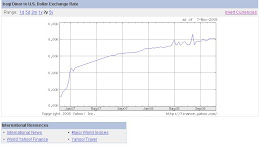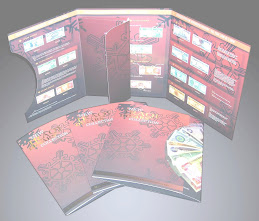Iraq has signed preliminary deals worth billions of dollars with General Electric Co and Siemens for equipment to almost double electricity generation capacity, an energy official said on Saturday.
The deals with GE, Siemens and a third company would be worth a total of $7 billion to $8 billion, Iraq's Electricity Minister Karim Waheed told Reuters.
Years of war, sanctions and neglect have battered Iraq's power grid and the country suffers chronic power shortages. The capital Baghdad receives only a few hours of electricity a day. The deals would mark a big step in the country's reconstruction, Waheed said.
"These deals will help us to end the electricity supply problem by 2012," Waheed said on a private visit to the United Arab Emirates.
Iraq signed a memorandum of understanding (MOU) earlier this month for U.S. giant General Electric to supply turbines to generate 6,800 megawatts of power, Waheed said.
He declined to say how much Iraq would pay GE for the equipment, but said each megawatt would cost between $700,000 and $800,000. That would give a value of between $4.8 billion and $5.4 billion.
The country has signed a second MOU with Germany's Siemens to supply equipment to generate another 2,000 MW, he added. That deal would be worth between $1.4 billion and $1.6 billion.
Baghdad was negotiating with a third company for another 1,000 MW, he said, declining to give further details.
The three deals would enable Iraq to add around 10,000 MW to installed capacity by around 11,000 MW. Damage to the power stations, lack of maintenance and drought mean Iraq's actual power production is well under capacity at around 5,500 MW.
Demand stands at around 11,000 MW, Waheed said.
Iraq plans to approach engineering, procurement and construction (EPC) firms to build the plants once the deals are signed, he added.
While big international companies were still reluctant to send people to work in Iraq, improvements in security had improved Baghdad's chances of attracting companies to undertake the work, he said.
Iraqi oil officials will meet Russia's Technoprom Export on October 12 to review a $124 million deal to repair 400 MW of power generation capacity in the southern city of Basra.
The World Bank will fund the deal, he added.
The deal was one of several frozen after the U.S.-led invasion of Iraq in March 2003. Iraq is also negotiating with Russia's Power Machines to revive another old deal to build two plants with 160 MW of capacity each in Iraq's north, he added.
Iraq signed a deal with GE for three power plants worth $480 million in June.
(Editing by Janet Lawrence)
(Reuters)


